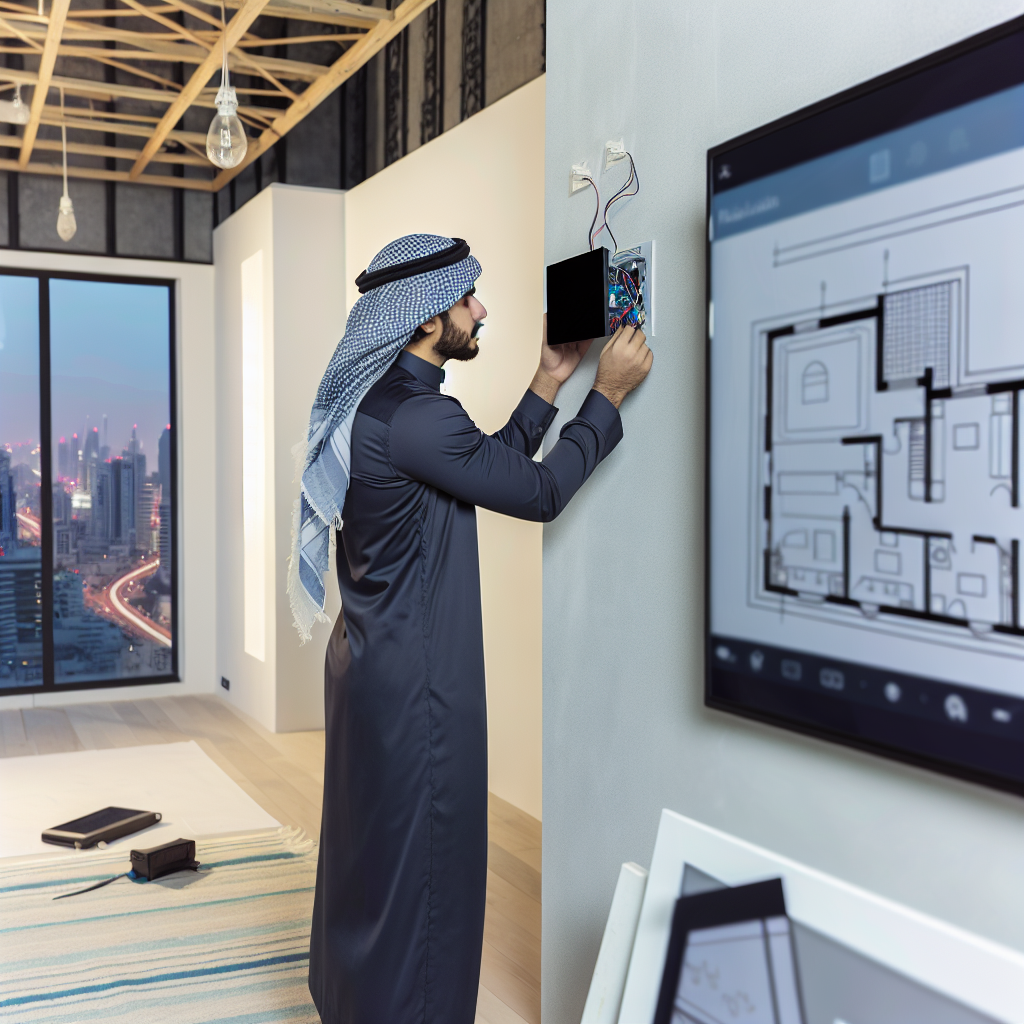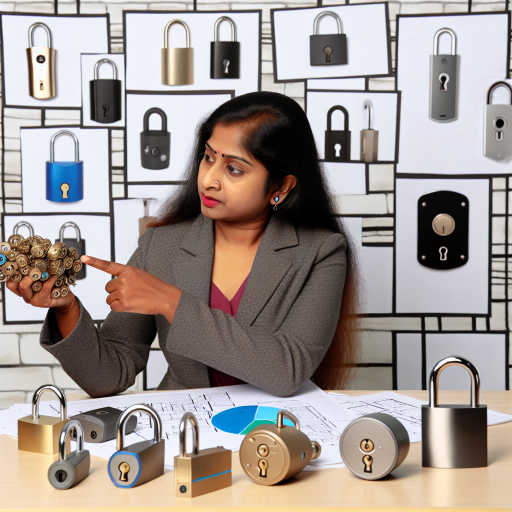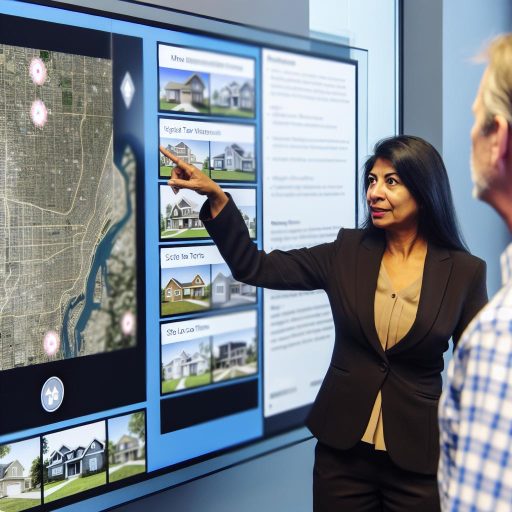Introduction to Smart Home Technology and Its Role in Sustainable Real Estate
Smart home technology revolutionizes how we manage our living spaces.
It offers innovative solutions for increased energy efficiency and sustainability.
This technology allows homeowners to monitor and control their energy consumption.
With advanced features, it enables automation of everyday tasks.
This reduces resource waste and enhances overall efficiency.
The Impact on Energy Consumption
Smart home devices significantly reduce energy use.
For instance, smart thermostats optimize heating and cooling systems.
They learn user habits to adjust temperatures automatically.
Moreover, smart lighting systems reduce electricity waste.
These systems turn off lights in unoccupied rooms, saving energy.
Encouraging Sustainable Practices
Integrating smart technology encourages eco-friendly living choices.
For example, smart irrigation systems conserve water in gardens.
They evaluate soil moisture levels to water precisely when needed.
As a result, these systems prevent overwatering and conserve resources.
Enhancing Home Value
Smart home features boost property value in the real estate market.
Buyers increasingly prioritize homes equipped with advanced technology.
In addition, properties with green technologies often sell faster.
This trend promotes investment in sustainable innovations.
Key Features of Smart Home Devices Contributing to Energy Efficiency
Intelligent Energy Management
Smart home devices enhance energy efficiency through intelligent energy management systems.
These systems monitor and analyze energy usage in real-time.
They help users identify high consumption patterns effortlessly.
Additionally, smart thermostats adjust settings based on user habits.
This automation leads to significant reductions in energy waste.
Efficient Lighting Control
Smart lighting solutions optimize energy consumption effectively.
Users can control lights remotely using smartphone apps.
Furthermore, motion sensors activate lighting only when necessary.
This feature reduces energy use considerably during periods of inactivity.
Incorporating LED technology ensures lower energy consumption overall.
Smart Appliances Integration
Integrating smart appliances can revolutionize energy usage at home.
For instance, smart refrigerators manage energy consumption automatically.
They adjust cooling levels based on the contents stored inside.
Similarly, smart washer and dryer systems schedule operations during off-peak hours.
This scheduling further minimizes energy costs for homeowners.
Home Automation Systems
Home automation systems streamline operations across various devices.
These systems increase energy efficiency by synchronizing device functions.
For example, users can program routines that save energy during the night.
Moreover, these systems can be controlled remotely, enhancing convenience.
This flexibility allows homeowners to optimize energy use effortlessly.
Renewable Energy Integration
Smart home technology supports the integration of renewable energy sources.
Homeowners can monitor solar panel energy production in real-time.
This capability promotes more effective energy management strategies.
Additionally, smart systems can prioritize renewable energy use when available.
Such practices contribute positively toward sustainable living initiatives.
The Impact of IoT on Real Estate Market Trends
Defining IoT and Its Relevance
The Internet of Things (IoT) refers to interconnected devices sharing data.
This technology has a significant impact on various sectors, including real estate.
IoT enables properties to become smarter and more efficient.
Enhancing Property Value
Smart home features, such as automated lighting, can increase property value.
Additionally, energy-efficient appliances attract eco-conscious buyers.
Properties equipped with IoT devices tend to sell faster.
This leads to a competitive advantage in the real estate market.
Improving Energy Efficiency
IoT devices monitor energy consumption in real time.
They help homeowners identify areas to reduce waste.
Smart thermostats adjust temperatures based on usage patterns.
This not only saves energy but also lowers utility bills.
Market Trends Driven by Consumer Demand
Investors increasingly prioritize properties with smart technology.
Many buyers now consider energy efficiency a key factor.
This shift in preferences drives market trends toward sustainable investments.
Real-Time Data Insights
IoT provides valuable data on property performance.
Investors can analyze usage patterns and make informed decisions.
This data aids in property management and optimization strategies.
Challenges in Implementation
Despite benefits, integrating IoT poses challenges for investors.
Privacy and data security concerns are prevalent in smart systems.
Additionally, the initial investment can be high for some properties.
However, the long-term savings often outweigh these initial costs.
The Future of IoT in Real Estate
The future of real estate increasingly relies on IoT advancements.
As technology evolves, more innovative solutions will emerge.
This trend will further promote sustainability within the industry.
Investors who adapt early will likely reap considerable rewards.
Discover More: Choosing Automated Irrigation Solutions For Sustainable Residential Gardens
Cost-Benefit Analysis: Smart Home Upgrades vs. Traditional Systems
Overview of Smart Home Technology
Smart home technology enhances convenience and energy efficiency.
This technology includes smart thermostats, lighting, and security systems.
These solutions connect devices through the internet, allowing remote access.
For investors, understanding smart technology is crucial for making informed decisions.
Initial Investment Costs
Smart home upgrades often require a higher upfront cost compared to traditional systems.
For instance, a smart thermostat typically costs more to install than a standard one.
However, some states offer rebates for energy-efficient upgrade installations.
Investors should calculate the total installation costs for each upgrade option.
Long-Term Savings
Smart home systems can significantly reduce energy bills over time.
For example, smart thermostats can adjust heating and cooling automatically.
This adjustment leads to energy consumption reductions of up to 30%.
Furthermore, automated lighting systems can prevent unnecessary usage.
Increased Property Value
Homes with smart technology often command higher resale values.
Buyers are increasingly looking for energy-efficient and tech-savvy features.
Smart home features can be a strong selling point during property viewings.
Investors should keep market trends in mind when considering these upgrades.
Maintenance and Upkeep
Smart home systems may require regular software updates and maintenance.
Traditional systems usually need less upkeep over time.
Investors must factor in potential long-term maintenance costs for smart devices.
Environmental Impact
Smart home upgrades contribute positively to sustainability efforts.
They help reduce carbon footprints through energy efficiency.
Moreover, many consumers are willing to pay a premium for eco-friendly homes.
Future-Proofing Your Investment
Investing in smart home technology prepares properties for future demands.
As technology evolves, homes will need to adapt to new innovations.
Incorporating smart systems can make properties more appealing to future renters.
You Might Also Like: Unlocking Real Estate Opportunities With PropTech Data Insights
Case Studies: Successful Integration of Smart Technology in Sustainable Developments
Greenwood Heights Development
Greenwood Heights is a prime example of smart technology integration.
This development utilizes smart thermostats to optimize energy usage.
Residents enjoy significant savings on their energy bills.
Additionally, solar panels generate renewable energy for the community.
Smart lighting systems adjust based on occupancy and natural light levels.
As a result, the development has minimized its carbon footprint.
Lakeside Eco-Village
Lakeside Eco-Village demonstrates the benefits of interconnected smart systems.
Each home features IoT devices that monitor energy consumption in real-time.
This data helps residents make informed decisions about energy use.
The community has implemented rainwater harvesting systems for sustainability.
Smart irrigation systems optimize water use for landscaping.
Overall, these technologies enhance quality of life and sustainability.
Maple Lane Community Project
Maple Lane Community Project focuses on energy efficiency and conservation.
Smart sensors detect energy loss in homes and provide alerts to homeowners.
This proactive approach reduces energy waste and loss.
Furthermore, the community supports electric vehicle (EV) charging stations.
Smart charging technology ensures efficient energy use for EVs.
This infrastructure encourages more residents to adopt electric vehicles.
Summit Ridge Smart City Initiative
Summit Ridge is transforming urban living through smart technology.
The city’s smart grid enhances energy distribution efficiency.
Residents benefit from real-time energy usage statistics and alerts.
Additionally, AI-driven traffic management systems reduce congestion.
This initiative promotes sustainable commuting practices in the community.
Smart waste management systems ensure efficient recycling and waste disposal.
Future Opportunities
These case studies highlight the potential of smart technology.
Future developments can further enhance sustainability in real estate.
Investing in smart tech aligns financial success with environmental stewardship.
As demand for sustainable living grows, so does the opportunity for innovation.
Developers can no longer ignore the benefits of smart technology.
The future of real estate investment will focus on sustainability and integration.
You Might Also Like: How PropTech Innovations Help Solve Common Real Estate Challenges

Government Incentives and Regulations Promoting Smart Sustainable Homes
Importance of Smart Sustainable Homes
Smart sustainable homes offer energy efficiency and reduced utility costs.
They contribute to environmental sustainability and promote healthier living conditions.
Moreover, these homes are becoming essential for modern real estate investments.
Government Incentives for Smart Technology
Many governments provide financial incentives to encourage the adoption of smart technologies in homes.
Tax credits and rebates can significantly reduce the initial costs of smart home installations.
For instance, the Energy Efficiency Home Improvement Credit allows homeowners to reclaim a percentage of their investment.
Additionally, some states offer grants for installing solar panels and other renewable energy systems.
Supportive Regulations
Various regulations aim to streamline the process of making homes smart and sustainable.
Building codes are evolving to include requirements for energy efficiency and smart systems.
These regulations ensure new constructions incorporate advanced technology and sustainable practices.
Furthermore, local zoning laws may promote the development of eco-friendly communities.
Long-Term Benefits of Government Support
Government support fosters innovation in the real estate sector.
It encourages businesses to invest in energy-efficient technologies.
As a result, there is an increase in value for properties that incorporate smart features.
Consequently, these investments enhance community reputation and attract environmentally-conscious buyers.
Future Trends in Legislation
Future legislation will likely focus more on smart home integration with renewable energy sources.
Energy storage systems and electric vehicle charging solutions may become mandated features.
Additionally, regulations supporting smart grids will enhance the efficiency of energy distribution.
Ultimately, upcoming policies will aim to create more sustainable and smart neighborhoods.
Uncover the Details: Optimizing Property Lighting With Smart LEDs And Automated Control Systems
Future Trends in Smart Home Technology and Their Implications for Real Estate Investments
Emerging Technologies in Smart Homes
Smart home technology is rapidly evolving to enhance user experience.
Devices now feature advanced automation capabilities.
Recent innovations focus on energy efficiency and sustainability.
IoT devices allow seamless integration of home systems.
Additionally, AI enhances user interaction and control.
Impact on Energy Management
Energy management becomes a priority with smart technology.
Smart thermostats optimize energy usage based on occupancy.
Homeowners benefit from significant savings on utility bills.
Renewable energy sources can also be integrated into these systems.
Investment in energy-efficient properties increases long-term value.
Market Demand for Smart Homes
Homebuyers increasingly seek smart home features.
Smart technology appeals to a younger, tech-savvy demographic.
These features enhance comfort and security in residential properties.
As demand rises, property values for smart homes appreciate faster.
Consequently, real estate investors prioritize locations with smart amenities.
Regulatory Considerations
Governments are enforcing regulations on energy efficiency.
Smart home technology supports compliance with these regulations.
Investors benefit from properties that meet or exceed standards.
This alignment offers competitive advantages in the market.
Furthermore, regulations on emissions impact investment strategies.
Challenges and Solutions
Despite benefits, challenges exist in implementing smart technologies.
High initial costs may deter some investors.
Education and awareness can mitigate these concerns.
Investors should evaluate long-term savings versus upfront costs.
Additionally, potential privacy issues must be addressed proactively.
The Future of Smart Home Integration
Future developments promise even greater integration of smart technologies.
Virtual and augmented reality will transform property showings.
Blockchain technology may enhance security in transactions.
As systems become more interconnected, additional opportunities arise.
Investors should stay informed about these advancements.
Challenges and Considerations for Investors in Smart Home Technology
Understanding Market Dynamics
The smart home market is rapidly evolving.
Investors need to stay informed about current trends.
Consumer preferences influence technology adoption.
Moreover, understanding regulatory changes is crucial.
Initial Investment Costs
Investing in smart home technology can incur high upfront costs.
Technology installation often requires a significant financial commitment.
Selecting the right systems can affect returns on investment.
Consequently, careful budgeting is essential for investors.
Integration and Compatibility Issues
Compatibility between devices can present challenges.
Not all smart devices work well with each other.
This can lead to increased complexity in management.
Thus, thorough research is necessary before purchasing technology.
Long-term Reliability and Maintenance
Smart home devices require regular maintenance to function effectively.
Investors should consider
Additional Resources
Culture, energy and climate sustainability, and smart home …
The new real estate investment edge: Tech-enabled brand, CX, and …




